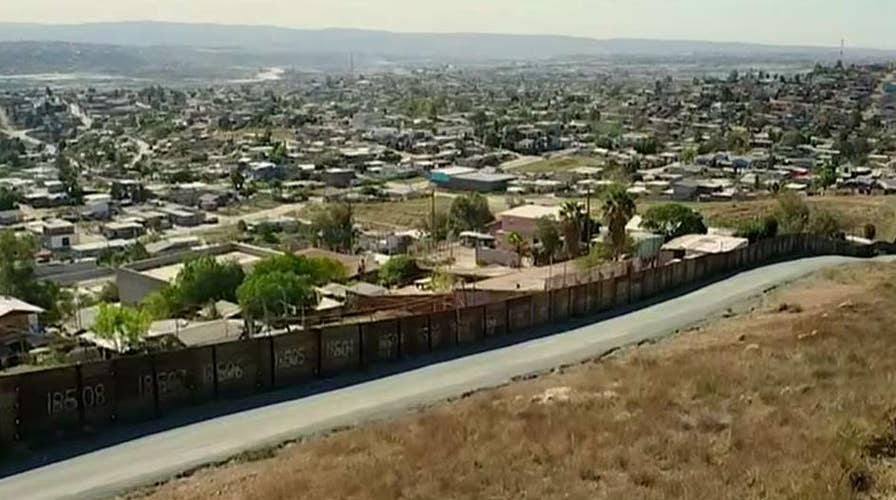A group of 103 illegal Central Americans — composed of 81 Guatemalans and 22 Hondurans, and including 59 minors — was detained Monday morning west of Lukeville, Ariz., according to U.S. Customs and Border Protection (CBP).
The U.S. Border Patrol, an arm of the CBP, said agents using mobile surveillance technology first spotted the group — ranging in age from 1 to 56 years old — “as they walked through the anti-vehicle post-and-rail fence that delineates the U.S.-Mexico border.”
It's unclear what is driving a sudden uptick in large groups in remote areas attempting to cross the border, but families -- many of them Central American asylum-seekers -- make up a large and growing percentage of arrests at the border, authorities said.
“In the last few months, Border Patrol agents have seen an alarming surge of large family groups crossing the border illegally at the direction of human smugglers,” CBP said in a statement. “Transnational criminal organizations exploit the vulnerability of family groups with false promises of legal status and encourage dangerous border crossings, placing lives at risk.”
Meanwhile, the latest groundbreaking of the Trump administration's border wall project came three days after President Trump declared a national emergency. The American Civil Liberties Union on Tuesday filed the fourth legal challenge to the emergency declaration.
A group of 16 states, including California, New York and Colorado, filed a lawsuit Monday against Trump’s emergency declaration to build the proposed border wall. The lawsuit, filed in the U.S. District Court for the Northern District of California, alleges Trump’s declaration is unconstitutional. All the states involved in the lawsuit have Democratic attorneys general.
Trump inherited barriers covering about one-third of the border. His administration has awarded $1 billion in contracts to cover 97 miles, with the vast majority of the work being done to replace existing barriers. Work on the first extension of the barrier is scheduled to begin later this month — 14 miles in Texas’ Rio Grande Valley.
The Associated Press contributed to this report.











































